I find every sect, as far as reason will help them, make use of it gladly: and where it fails them, they cry out, It is a matter of faith, and above reason.
JOHN LOCKEStruggle is nature’s way of strengthening it
More John Locke Quotes
-





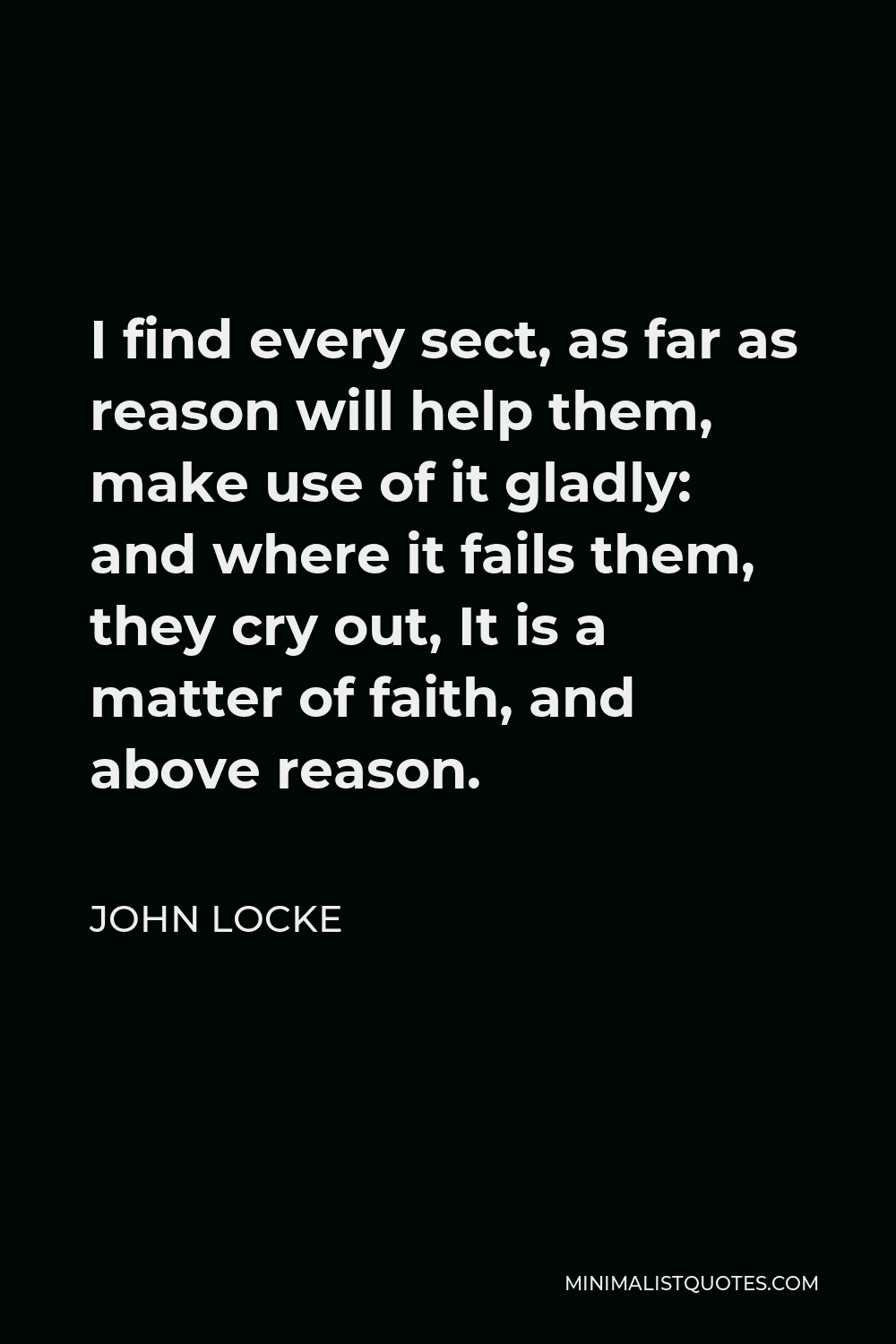
-






Struggle is nature’s way of strengthening it
JOHN LOCKE -






Mathematical proofs, like diamonds, are hard and clear, and will be touched with nothing but strict reasoning.
JOHN LOCKE -





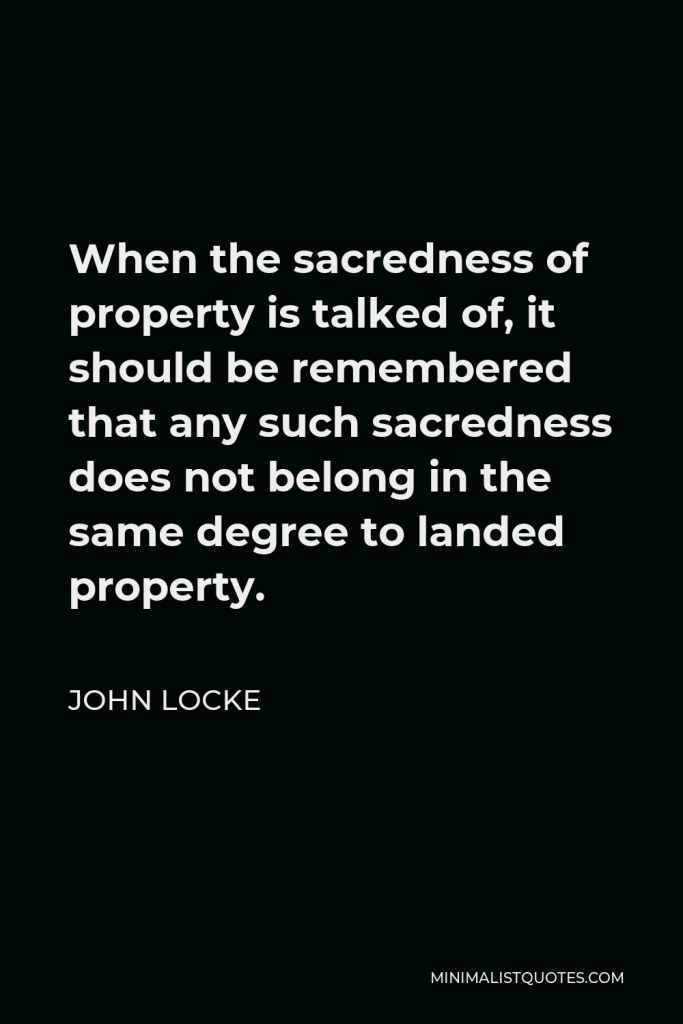

When the sacredness of property is talked of, it should be remembered that any such sacredness does not belong in the same degree to landed property.
JOHN LOCKE -






Government has no other end, but the preservation of property.
JOHN LOCKE -






To be rational is so glorious a thing, that two-legged creatures generally content themselves with the title.
JOHN LOCKE -





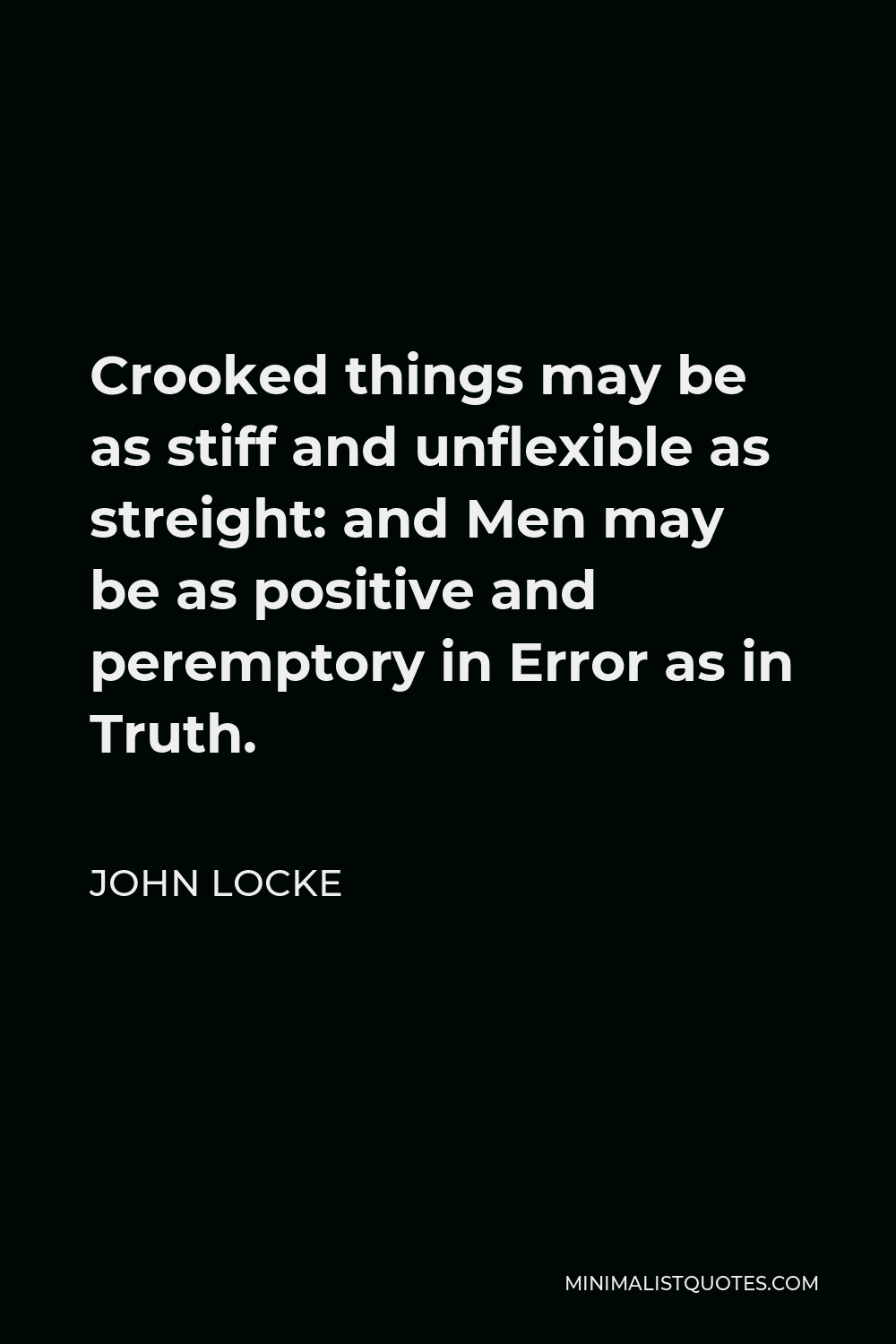
Crooked things may be as stiff and unflexible as streight: and Men may be as positive and peremptory in Error as in Truth.
JOHN LOCKE -





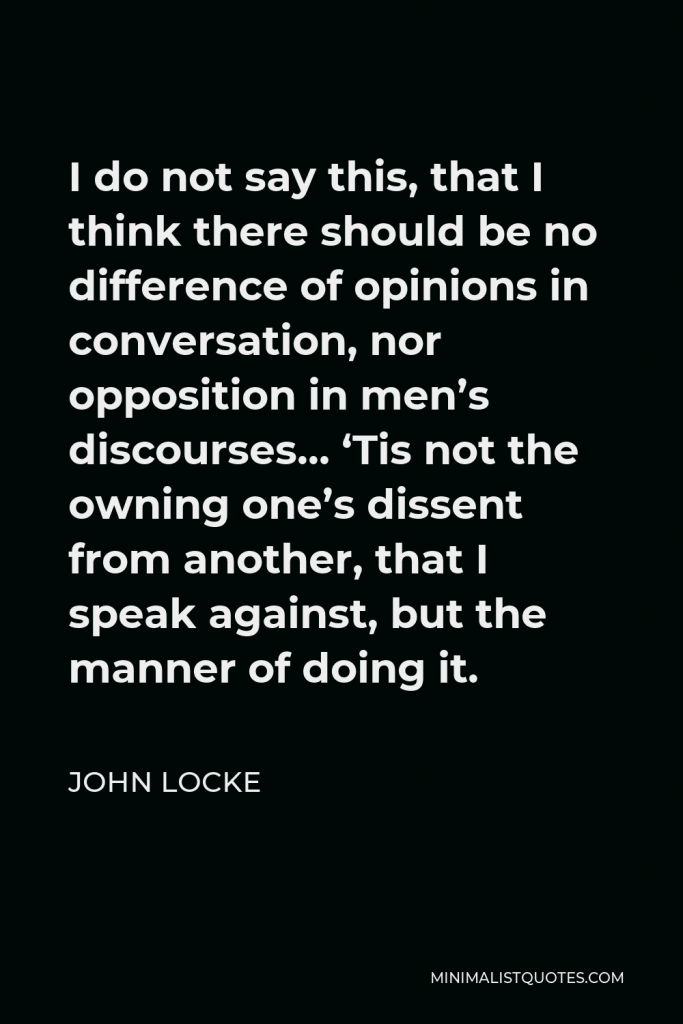

I do not say this, that I think there should be no difference of opinions in conversation, nor opposition in men’s discourses… ‘Tis not the owning one’s dissent from another, that I speak against, but the manner of doing it.
JOHN LOCKE -







No peace and security among mankind-let alone common friendship-can ever exist as long as people think that governments get their authority from God and that religion is to be propagated by force of arms.
JOHN LOCKE -






The senses at first let in particular Ideas, and furnish the yet empty Cabinet: And the Mind by degrees growing familiar with some of them, they are lodged in the Memory, and Names got to them.
JOHN LOCKE -





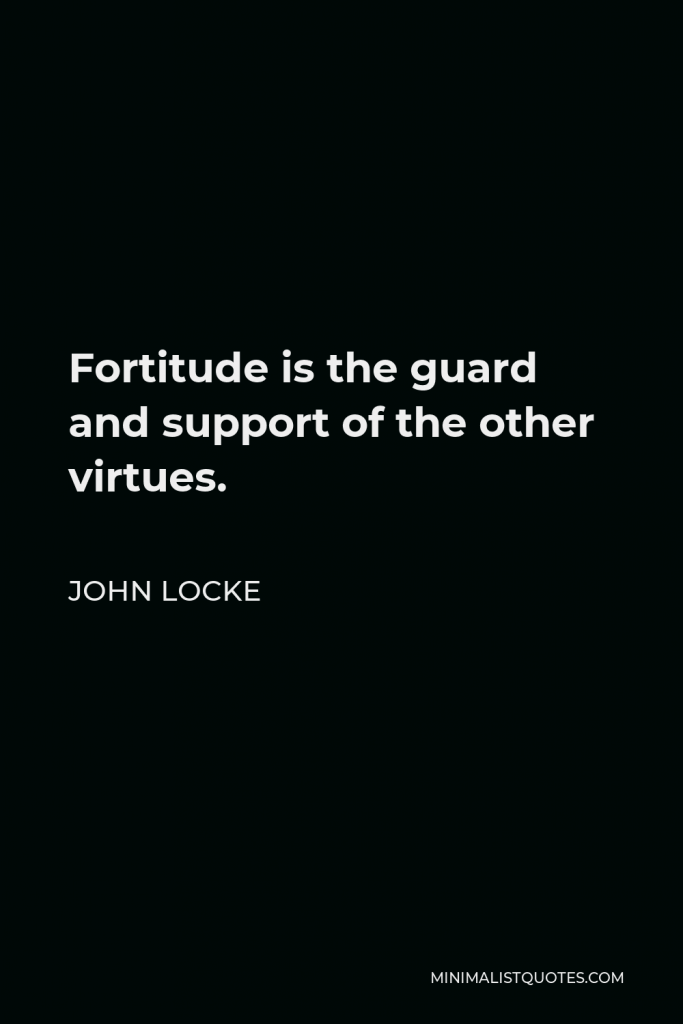

Fortitude is the guard and support of the other virtues.
JOHN LOCKE -







Things of this world are in so constant a flux, that nothing remains long in the same state.
JOHN LOCKE -







The great art to learn much is to undertake a little at a time.
JOHN LOCKE -






How long have you been holding those words in your head, hoping to use them?
JOHN LOCKE -





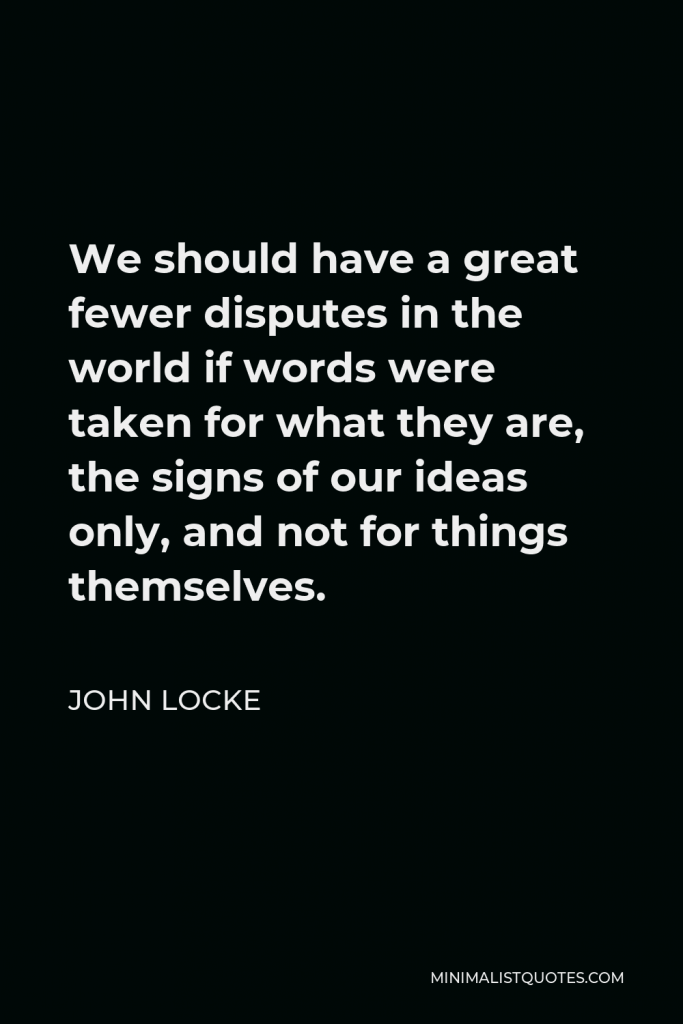

We should have a great fewer disputes in the world if words were taken for what they are, the signs of our ideas only, and not for things themselves.
JOHN LOCKE -






A king is a mortal god on earth, unto whom the living God hath lent his own name as a great honour; but withal told him, he should die like a man, lest he should be proud, and flatter himself that God hath with his name imparted unto him his nature also.
JOHN LOCKE






